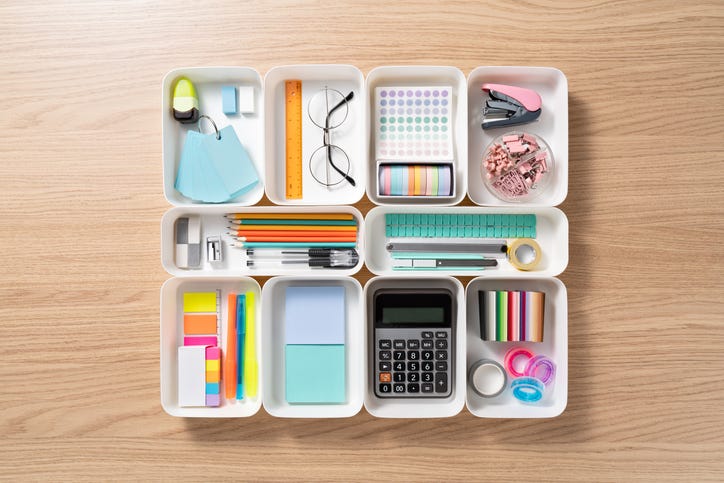Perfectionism and the Performance of Organizing
Some unorganized thoughts on finishing the book, gender norms, and food storage containers.

I spent last week finishing up my book revisions and friends, my brain is done. Revising a book is not nearly as satisfying as writing a book in the first place. When I first finish a manuscript, I feel only a flush of triumph because whatever doubts I have about how good the work is are immediately assuaged by the knowledge that I’m not really done and there will be many more chances to make it better. But the manuscript revision comes with so much more pressure. I’ll still have a few more chances to make changes — the book now moves into fact-checking and copy editing and then first pass and sensitivity reading, then second pass and the final proof. But with each round from here on out, the changes I’m allowed to make are smaller and smaller. This full manuscript revision was my last big chance to move whole paragraphs around, to add more reporting (I added 10,000 words of it, sorry again to my editor!), to completely rewrite the end of almost every chapter.
This revision is also when I struggled with big amorphous questions: Are my tone shifts working? Am I answering questions in a satisfying way, but also raising them and letting readers do their own work? Is the balance of narrative to analysis to advice right? Is there enough of me or too much? The problem with questions like these is that you can’t actually ever feel done with them. I could always make the tone shifts smoother in this book. And every reader I might ask will have a different opinion about the right balance for these various elements.
Revising a book (or any piece of writing) is about exerting control and imposing order over the first messy draft. But it’s also about running up against the brick walls of your talent and realizing just how much of the success of the book you absolutely cannot control. So it’s not a huge surprise that in between revising bursts, I’ve been organizing the shit out of my house.
Organizing is something I’ve done to self-soothe and relax since I was a little kid. I grew up in an amicable but slightly chaotic joint custody arrangement, so I got really good, early on, at knowing what needed to be in my backpack when I changed houses on Sundays and Wednesdays. I’ve always gotten into the big back to school organizing energy, but I also used to deep clean my bedroom at the end of every school year, maybe as a way of processing everything that had happened. I have never gotten into Marie Kondo but that’s because I already know our clutter does not spark joy and I have no problem tossing it whenever my kids aren’t looking. I also organize when I’m anxious or stressed out. The year my older daughter had two major surgeries and was critically ill for five months, we hired a dumpster and cleaned out our entire house in between hospital stays. Which felt both cathartic and insane.
Organizing is a complicated drug.

